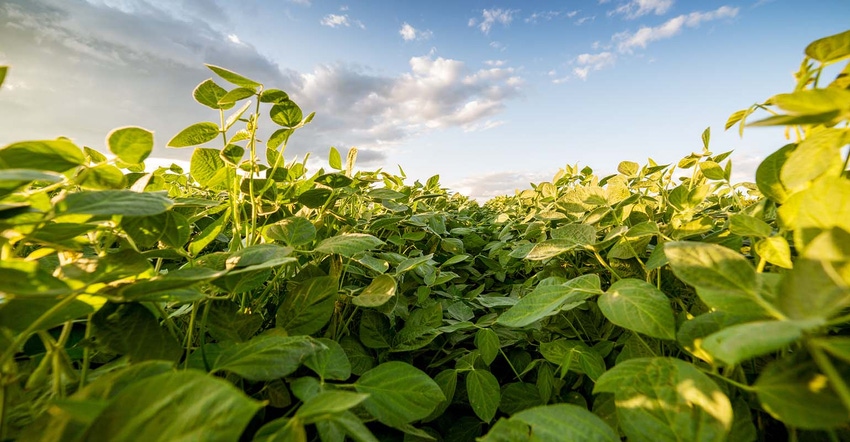
by Isis Almeida, Kevin Varley and Alfred Cang
Top soybean importer China is buying more American supplies as talks between Washington and Beijing seek a lasting truce to a trade conflict that has roiled global markets, according to traders familiar with the transaction.
State stockpiler Sinograin bought at least 20 cargoes on Monday, said the traders, who asked not to be identified because the deals are private. The cargoes to be loaded in the Gulf Coast are for January and early February, while those bought from the Pacific Northwest will be for February and March, they said. Total purchases were between 1.3 million and 1.5 million tons, which is the equivalent of about 20 to 25 cargoes, according to one of the traders.
The move came just as U.S. and Chinese officials started trade negotiations on Monday in the hope of reaching a deal during a 90-day truce between President Donald Trump and his counterpart Xi Jinping agreed in early December. The Trump administration expressed optimism it can reach a “reasonable” trade deal after China dispatched one of his top aides to negotiations in Beijing.
"Last week, the Chinese state companies were dead in the water, and the private crushers bought perhaps two cargoes of beans," Charlie Sernatinger, global head of grain futures for ED&F Man Capital Markets in Chicago, said in an emailed report. "Today they came out with guns blazing, and were said to have bought 25 cargoes of beans from the U.S."
China last made a big purchase of soybeans before Christmas, scooping up about 1.2 million metric tons for delivery by Aug. 31, according to the U.S. Department of Agriculture. That was on top of 1.56 million tons in the week ended Dec. 13. China aimed to buy at least 5 million tons of soybeans, people familiar with the matter said previously.
China’s top food company, Cofco Corp., said it made two purchases, while Sinograin said it bought in batches “to implement the consensus achieved by state leaders.” A Sinograin spokesman declined to comment on the most recent purchases.
There won’t be any official confirmation of the sales until a partial government shutdown ends as the U.S Department of Agriculture isn’t publishing either its flash or weekly export sales reports. Last week, Cofco was in the market asking for soybean prices and it’s still unclear whether any trades were concluded then.
Sailing to China
Some shipments are already moving to China. Vessel Attalia is carrying 68,337 tons of soybeans from the Kalama Export Company elevator, a venture owned by Archer-Daniels-Midland Co., Marubeni Corp. and Mitsubishi Corp., according to USDA inspection data and shipping data analyzed by Bloomberg. Spitha is carrying 64,660 tons from the Export Grain Terminal, owned by Bunge Ltd. and Japan’s Itochu Corp.
China will wait until after trade talks this week before deciding on buying feed grains such as corn and sorghum from the U.S., people familiar with the matter said last week. Soybean purchases were part of the truce following talks during the G-20 meeting and the Asian nation aims to buy at least 5 million tons as part of the agreement, the people said. Today’s purchases probably took China close or even slightly above that.
“There’s a very good chance that we’ll get a reasonable settlement that China can live with, that we can live with, and that addresses all the key issues,” Commerce Secretary Wilbur Ross told CNBC Monday.
Such a deal could involve the Chinese buying more American soybeans and liquefied natural gas, while agreeing to deeper “structural reforms” on issues such as intellectual-property rights and market access, Ross said.
--With assistance from Andrew Mayeda, Kasia Klimasinska, Jenny Leonard, Mario Parker and Niu Shuping.
To contact the reporters on this story: Isis Almeida in Chicago at [email protected] ;Kevin Varley in Washington at [email protected] ;Alfred Cang in Singapore at [email protected]
To contact the editors responsible for this story: Tina Davis at [email protected] Alexander Kwiatkowski
© 2019 Bloomberg L.P
About the Author(s)
You May Also Like




